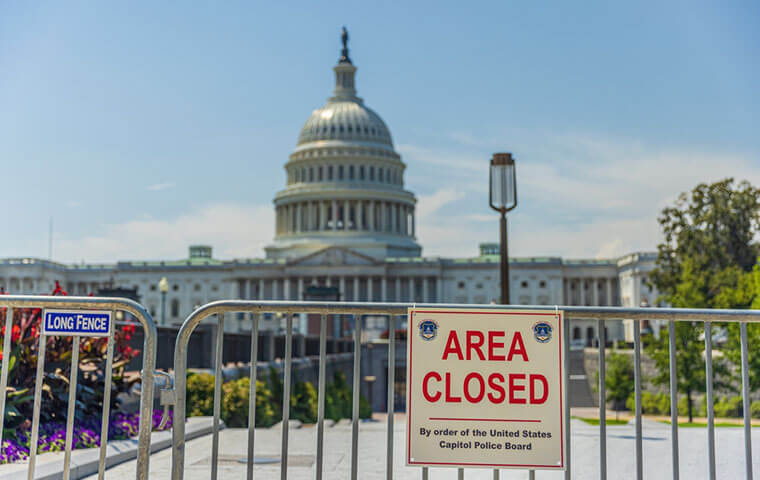 Among the bills awaiting floor voting is the general government measure, with House-added riders to defund DEI initiatives in federal agencies and banning “gender-affirming care” coverage in the FEHB. Image: Framalicious/Shutterstock.com
By: FEDweek Staff
Among the bills awaiting floor voting is the general government measure, with House-added riders to defund DEI initiatives in federal agencies and banning “gender-affirming care” coverage in the FEHB. Image: Framalicious/Shutterstock.com
By: FEDweek StaffIn recessing until after Labor Day Congress has left behind much unfinished business for federal employees.
On its return, one first issue demanding attention will be the need to prevent a funding lapse with the end of the current fiscal year September 30. On one level, that process is more advanced than in most recent years, with the Senate Appropriations Committee having approved all 12 of the regular funding bills and the counterpart House committee 10. Only one of those measures has reached a floor vote, with the House last week passing a bill covering the VA and military construction spending.
While it’s been expected all along that those bills won’t be enacted as soon as September 30 and that a temporary measure will be needed, House Republicans have added a number of social policy riders to them and could try to do the same with a stopgap bill. That could result in another round of budgetary brinksmanship, given the opposition of the White House and congressional Democrats to those provisions.
Among the bills awaiting floor voting is the general government measure, to which the House has attached several policy riders, including defunding DEI initiatives in federal agencies and banning “gender-affirming care” coverage in the FEHB. That bill meanwhile is silent regarding a January 2024 federal employee pay raise, in effect clearing the way for President Biden to put into effect by default the average 5.2 percent increase he proposed earlier in the year.
Another major annual bill, the defense authorization, now has passed both chambers but the House version of that bill also contains similar social policy riders, making for difficult negotiations ahead on that bill, as well.
During voting last week, the Senate did not take up a proposed amendment to head off a potential future “Schedule F” for converting possibly 50,000 or more competitive service federal employees involved with making or carrying out policy into the excepted service, where they would lose appeal rights, union rights and many other civil service protections.
The Senate meanwhile rejected an amendment to prevent TSP account holders who are eligible for the mutual fund window feature from investing in funds including the stocks of certain Chinese companies.
Sponsors of both proposals said they would continue to push them, although the must-pass DoD bill may have held out their best chances of enactment this year.
Several pay-related topics also will await Congress’s attention. The additional funding for the higher pay rates for most federal wildland firefighters that took effect a year ago will lapse September 30, threatening a reversion of to the prior rates unless additional funding is provided. Bills are pending in both the House and Senate to do so.
Similarly, additional funding will be needed to maintain the higher pay rates that just recently took effect for most TSA employees. While pending spending bills would provide the funding needed for TSA’s screeners, they would not provide the needed money for non-screener employees who also received a boost.
OPM Advises Agencies on Conducting RIFs During Shutdown
Updated Shutdown Contingency Plans Show Range of Impacts
Use Shutdown as Justification for More RIFs, OMB Tells Agencies
Unions Win a Round in Court Disputes over Anti-Representation Orders
Deferred Resignation Periods End for Many; Overall 12% Drop
Senate Bill Would Override Trump Orders against Unions
See also,
How to Handle Taxes Owed on TSP Roth Conversions? Use a Ladder
The Best Ages for Federal Employees to Retire
Best States to Retire for Federal Retirees: 2025

